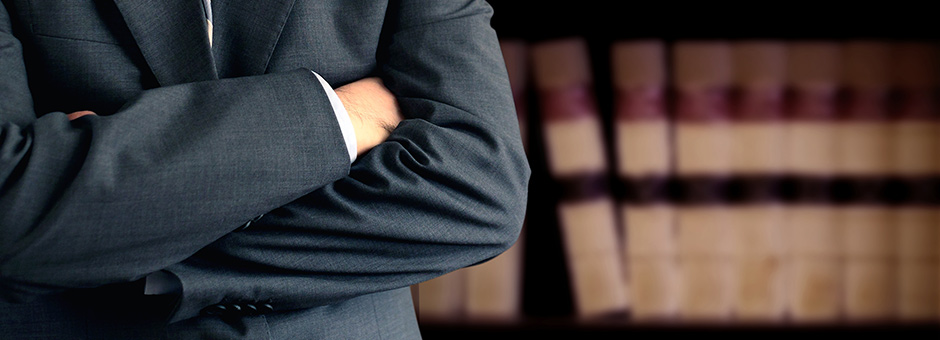The Common Law #14
The Common Law #14
(The following column was originally published in November, 2011.)
(The following column was originally published in November, 2011.)
The Common Law:
Call My Lawyer
Call My Lawyer
By N. Bob Pesall
Attorney At Law
Flandreau, SD
Attorney At Law
Flandreau, SD
As most of you know, I'm a lawyer. As a lawyer, I frequently endure the giggles of my friends as they recite the latest lawyer joke for me. Its all in good fun, and I take it well. I'm able to do this because I know, deep down, that someday they're going to call me at 2:00 in the morning and need my help. As Americans, and citizens of the great state of South Dakota, we have a lot of blessings. Among them is our right to a lawyer if we are accused of crimes.
This right is enshrined in Article VI Section 7 of our State constitution, and in the federal Sixth Amendment. There are actually a whole bunch of rights in those sections which, together, give us the best criminal justice system in the world. The right to an attorney, however, is especially important. It guarantees that, whether you are innocent or not, you will have at least one person standing at your side, who knows the system. A lesser reason why this right is important is because it helps me make my student loan payments.
This right is enshrined in Article VI Section 7 of our State constitution, and in the federal Sixth Amendment. There are actually a whole bunch of rights in those sections which, together, give us the best criminal justice system in the world. The right to an attorney, however, is especially important. It guarantees that, whether you are innocent or not, you will have at least one person standing at your side, who knows the system. A lesser reason why this right is important is because it helps me make my student loan payments.
The right to counsel is not without cost, however. If you are charged with a crime and want a lawyer, you have to pay for it. If you can't pay for it, you can get one appointed at public expense (but you'll have to pay it back eventually.) The benefits to our way of life and our individual rights, however, more than justify the cost. Having this right in place helps assure us that we are not convicting innocent people of crimes, and that if we ourselves ever get accused of a crime, (guilty or not,) we will have someone to defend us in court, and help us through the process.
So what does a defense lawyer do in a criminal case? First of all, they help their clients figure out what they've been charged with, and how to handle it. Contrary to popular belief, crime and punishment is not a simple process. Many offenses now-a-days have consequences that go far beyond a few days in jail or a fine. Even ordinary, misdemeanor criminal convictions can cost a person their driver's license, their job, their student loans, or their right to own firearms. One of the first things a person's lawyer has to do is help them understand how the case may impact his life.
Second, lawyers help their clients evaluate the law and the evidence against them. Sometimes people do dumb things which are not technically illegal. Sometimes the line between what's legal and illegal isn't clear. There are even some unfortunate cases where charges are brought against the wrong person.
Finally, lawyers help their clients through the judicial process. Criminal cases move through several phases. There may be hearings on probable cause, hearings regarding the defendant's constitutional rights and pleas, hearings on motions, and ultimately a jury trial. Most cases are resolved without going to trial, but for the defendant who does not know the system, and has not read the rules of evidence and court procedure, a lawyer's help is essential.
Its a complicated system, because life is complicated. Every year our legislators propose new laws, revise old ones, and try to pass a motorcycle helmet law. And, every year some of these proposals actually get enacted. We, the public, are expected to deal with the results. As unfortunate as it sounds, if there may be no good way around this. My old tax law professor used to say, “the laws can be simple, or they can be fair, but they cannot be both.”
Consider the humble driver's license. We have a law lets people over the age of 16 drive if they have a license. Simple, right? But what about 14 year olds? Should we at least let them drive to work? Probably, but we'll need a law for that. Should we let them drive at 2:00 AM with a bunch of friends in the car and the music blasting? Probably not, but we'll need a law for that. What about 16 year olds who get busted for drinking at a party? What about drunk drivers? What about 16 year olds and drunk drivers who just need to get to work? Every time a question like this comes up, our legal system gets just a little bit more complicated.
Of course, if you find yourself charged with a crime, you do not have to have a lawyer. You have every right to defend yourself if you want. You can take the time to read the rules, learn the law, and observe how the court system works. Whether you exercise your right to a lawyer is ultimately your own decision. If your freedom is at stake, however, so you should not make that decision lightly.
The foregoing column is written for informational purposes only, and does not constitute legal advice. N. Bob Pesall can be reached at P.O. Box 23, Flandreau, SD 57028, by telephone at (605) 573-0274, or on the web at http://www.pesall.com


